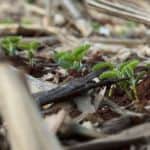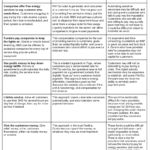Keeping Food on the Table During COVID-19: How Refugee Entrepreneurs Have Stayed Afloat – and Thrown a Lifeline to Others
The COVID-19 crisis has hit the food sector particularly hard, upending traditional business models and disrupting supply chains. The challenges facing these businesses have far-reaching implications – not only for the enterprises themselves, but also for the people they supply with food during the pandemic-induced lockdown. Fortunately, many of these businesses are responding to these disruptions with creativity and innovation, enabling them to continue delivering food, maintaining supply chains, supporting workers’ livelihoods – and helping to feed society during these unprecedented times.
Below, we’ll discuss three key developments engendered by the crisis that are allowing nimble food sector entrepreneurs to pivot to new business models that can help them weather these challenges.
A Growing Interest in Preparing Foods at Home
The pandemic has brought with it a growing interest in baking, particularly bread baking. Some food entrepreneurs are leveraging this trend to branch out into new products. For instance, Nadide Yildirim is a Turkish entrepreneur based in Instanbul and a recent participant in the LIFE Project, a U.S. State Department-funded program that supports entrepreneurship, job creation and cross-cultural engagement in the food sector in Turkey. The William Davidson Institute (WDI) developed a comprehensive entrepreneurship training curriculum for the LIFE Project, drawing on its 6M Entrepreneurship Development Model. At the onset of the crisis, Yildirim started selling yeast on Instagram with the tagline “Stay at home, make your own bread.” Through these sales, she was able to expand her business beyond Istanbul.
Yildirim also created a new promotional strategy with videos on how to bake bread. Between the yeast sales and the online videos, she is now reaching a much broader audience, no longer limited by her ability to deliver physical products in person.
Another entrepreneur and LIFE Project member, Emine Yalçın Aka, runs a kombucha business in Mersin, Turkey. Before COVID-19 hit, she was selling only the finished product, but now she has pivoted to selling homebrew kombucha kits. This has enabled her to expand her market dramatically, as she can now reach customers throughout Turkey. She is also spreading the word through Instagram, and has found a sense of meaning in delivering a healthy product during the pandemic.
Mounting Fears About the Reliability of the Food System
In these uncertain times rife with supply chain disruptions, consumers are putting a premium on trusted, reliable sources and suppliers they know. This has boosted the business of another LIFE Project entrepreneur, Fatimah Alkhedr, a Syrian refugee in Mersin who has seen growth in her dairy business since the crisis hit. She has doubled her sales of ghee, cheese and yogurt because she sells direct, and her loyal customers are spreading the word to their friends. She also has a direct line to a reliable supplier of the milk. “The natural milk allows her to produce distinguished products in a time where people are not being able to trust other sources than the ones they already know or that are recommended by an acquaintance of theirs,” said Nour Akkad, coordinator for the LIFE Project in Mersin from the Center for International Private Enterprise (CIPE).
Demand for Meals from Health Care Workers
The spike in critically ill victims of the COVID-19 pandemic has overwhelmed the emergency responders and health care workers who toil on the front lines. And though it hasn’t gotten the attention of some of the other health care challenges related to this crisis, a lack of food has complicated this response. Hospitals have been unprepared to feed their staff members – doctors, nurses, cleaners – as regular meal services were curtailed. City ambulance services have had no way to find meals for paramedics and drivers, as social distancing has forced the shutdown of most restaurants and food services in major cities.
However, this food shortage has also led to opportunity for nimble entrepreneurs. In Baltimore, Maryland, Mera Kitchen Collective, a cooperative founded by refugees, realized that its revenue from hosting pop-up dinners would plummet as the pandemic precluded large events. The collective put out a call for people in need of meals, and the response has been huge – including from health care workers, out-of-work parents, and those serving school children who no longer have ready access to daily meals. Mera co-founder Aishah Alfadhalah, a refugee from Syria, recruited a fellow compatriot and a member of the collective, Chef Iman Alshehab (the former executive chef of the Four Seasons in Damascus) to prepare dinners for hospital staff and families in need. The group has also started a GoFundMe page to pay their chefs and to purchase supplies and packaging. Alfadhalah says that the resilience her business has shown is part of every refugee’s DNA. As she recently told Thrillist: “Refugees who have been so close to death understand why it’s important to preserve each other and reduce suffering where you can.”
The Migrant Kitchen in New York City has executed a similar pivot. A social impact-focused catering company that trains and hires immigrants, migrants and undocumented workers in commercial cooking, it had built a successful business selling its dishes in workspaces like WeWork. Once these spaces closed due to the pandemic, however, the market dried up. Migrant Kitchen realized it would have to lay off its work force unless it could find another way to support its business. So co-founder Nasser Jaber and his team decided to use their kitchens and their food to help hospital workers in New York. They created a nonprofit for the initiative and started a GoFundMe campaign. With the funds they raised, they re-hired their staff and had them cook for the health care workers.
Jaber, a member of the LIFE Project Advisory Council, also reached out to the Muslim community. He knew the start of Ramadan in late April would bring demand for Halal meals, specifically for Iftar dinners served at the end of the daily fast at sunset. With so many people unable to get to family Iftar dinners, Jaber saw a way to help this community. So the Migrant Kitchen partnered with World Central Kitchen — the humanitarian organization started by Chef Jose Andres — to provide Halal meals throughout the month of Ramadan. These efforts have also helped keep many of the company’s chefs employed at a time when people are not using daily food services. Being able to respond quickly, create new opportunities, and still continue to pay their staff underscores the resilience of entrepreneurs like Jaber in the face of a global pandemic that has left many food service businesses in ruins.
In conclusion: From Crisis to Opportunity
Crises spawn new opportunities — internationally and in the United States. Entrepreneurs who are able to identify and act on these opportunities have demonstrated the power of a positive mindset in the entrepreneurial journey. (In fact, “mindset” is the first of the “M’s” in WDI’s 6M Entrepreneurship Development Model.) Selin Eker, another LIFE Project member from Turkey who successfully pivoted her bread business in the crisis, embodies this power. As she put it, “The fact that I was very fast to adapt did me well. I set out with the logic of creating opportunity arising from the current crisis, and I can say that the process of staying at home and doing more research and development is good for me.”
Resilience also plays a key role, especially among many of the LIFE Project entrepreneurs who are refugees. Consider the background of Fatimah Alkhedr, the dairy entrepreneur mentioned above: She fled from Syria to Jordan with her children after losing her husband. Afterwards, she lost her brother and father in a car accident. She struggled with daily tasks, like feeding her children. When she finally was able to function again, she started a business in Jordan selling dairy products to other refugees. She then moved to Mersin, Turkey and re-started the business there. This situation – her harrowing journey from Syria via Jordan to Turkey – would have defeated many. But Alkhedr found the strength to go on. She’s using that resilience to help her business thrive in difficult conditions.
These examples of entrepreneurs stepping up to the unique demands of the COVID-19 pandemic in Turkey and the United States demonstrate the importance of seizing new opportunities. Even in the face of adversity, there is still a strong human need to serve others – and specifically to use food as a means of communication and a universal language of trust.
Amy Gillett is the vice president of Education at the William Davidson Institute and the Founder of WDI’s Entrepreneurship Development Center.
Johanna Mendelson Forman is a distinguished fellow at the Stimson Center and an Adjunct Professor at the School of International Service of American University in Washington, D.C.
Photos courtesy of the LIFE Project.
- Categories
- Coronavirus




